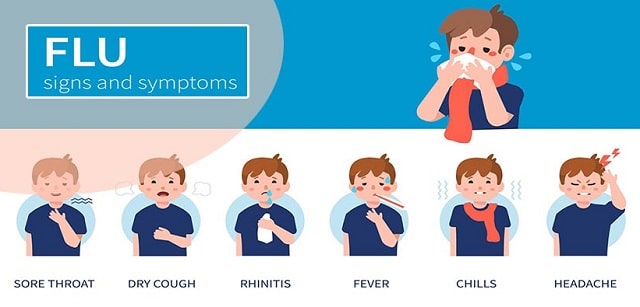
Flu (influenza) is a potent virus that can take a huge toll on your psychological and physical health. It can force you to stay away from work, school, or other activities. However, detecting the first signs of the flu can help you to prevent it from getting worse. With the help of a Turlock flu medical specialist, you can find relief for your early symptoms.
Here are some of the first symptoms and signs of the flu virus:
1. Abrupt Or Overwhelming Fatigue
An abrupt feeling of excessive fatigue might arise before other symptoms. You might attribute the feeling to working hard or engaging in physical activity, but that might not be the case. Fatigue is also a common cold symptom, but it tends to be more pronounced with the flu. Extreme tiredness can clash with your daily routine. It is essential that you take some time to rest.
2. Scratchy Or Sore Throat
During the earliest phases of influenza, your throat might have a sore or scratchy sensation. You may also face a strange feeling each time you swallow food or beverages. The sore throat usually becomes worse as the flu continues to progress. You can remedy the situation with some warm water, chicken noodle soup, or herbal tea.
3. Fever
A fever of more than 100.4ºF is usually one of the first flu symptoms. At this stage, it is easy to mistake the flu for a common cold. However, if it is influenza, it is typically accompanied by other characteristic symptoms that can show that you are suffering from the flu.
4. Body Aches And Chills
When you are coming down with the flu, you may experience body aches in your head, back, legs or other body parts. The aches may also be accompanied by chills, which may come before a fever. Using a warm blanket to cover yourself can help to raise the body temperature and potentially decrease the chills. You can also take acetaminophen or ibuprofen to relieve any body aches.
5. Cough
A constant dry cough is another warning symptom of the flu. The cough is considered dry, because it does not come with phlegm or mucus. If you suffer from asthma, emphysema, or other respiratory symptoms, you might have to visit a doctor to avoid complications such as pneumonia or bronchitis.
6. Gastrointestinal Issues
Some influenza strains can trigger nausea, vomiting, stomach ache, and diarrhea. Persistent diarrhea and vomiting poses the risk of dehydration, so you should drink plenty of water, consume a broth, sports drink, or caffeine-free tea.
How To Prevent The Flu
Fortunately, influenza is a preventable condition. Getting a yearly flu shot is one of the best preventative measures. The injection is recommended for everybody ages 6 months and above.
Other flu prevention measures include:
● Do not come into close contact with flu victims
● Remain at home if you are feeling under the weather, particularly if you have a fever
● Cover your mouth while coughing to protect other people
● Wash your hands regularly with soap and running water
● Don’t touch your mouth or nose frequently
Most flu cases are mild and don’t require medical intervention or antiviral medications. However, if your influenza virus symptoms continue to persist and get worse, you should call your doctor for medical help.
